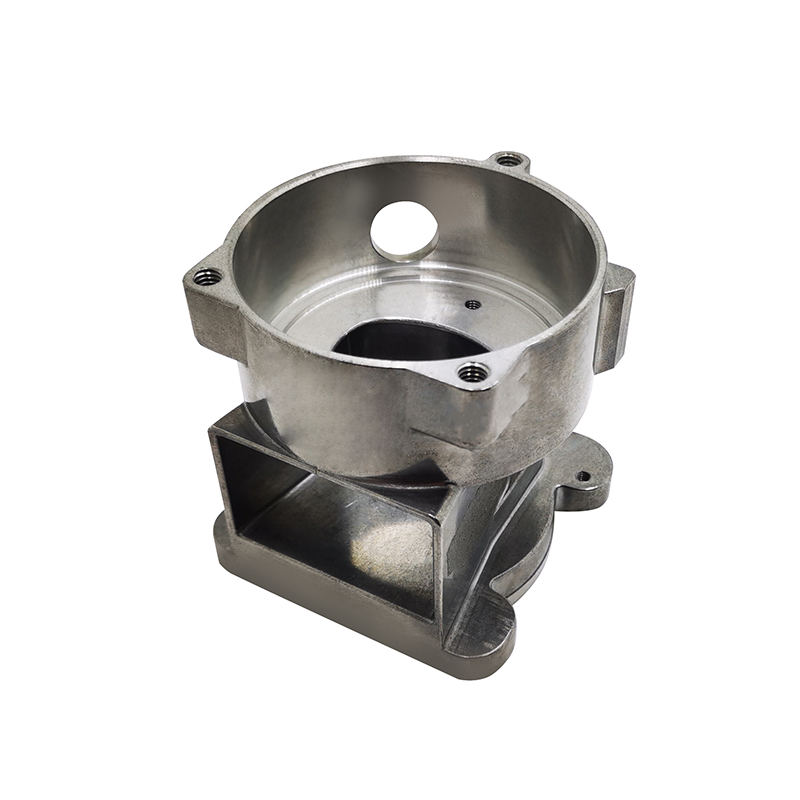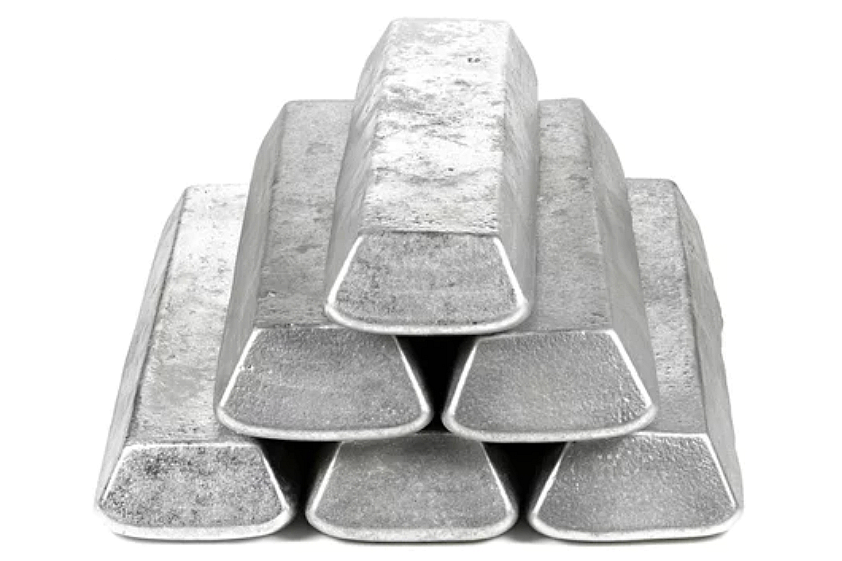Aluminum casting and its role in automotive advancements
Wiki Article
The Role of Aluminum Foundries beforehand Lightweight Manufacturing Solutions
Light weight aluminum factories significantly add to the evolution of lightweight production options. Their cutting-edge casting innovations generate high-strength, light-weight components important for industries such as auto and aerospace. This advancement not only improves product performance but additionally promotes sustainability via using recycled materials. As these shops adapt to arising modern technologies and techniques, they lead the way for future developments in manufacturing efficiency and environmental responsibility. What lies in advance in this transformative trip?The Benefits of Lightweight Materials in Manufacturing
As sectors significantly look for efficiency and sustainability, the fostering of lightweight products in manufacturing has actually become an essential technique - Aluminum Casting Company. These products, specifically aluminum and compounds, offer various benefits that enhance manufacturing processes and product efficiency. Mainly, their reduced weight adds to reduce power consumption during transport and procedure, leading to substantial expense savingsIn addition, lightweight products facilitate the design of more facility geometries, enabling better development in product growth. This versatility typically results in improved functionality and performance, dealing with the evolving needs of modern-day consumers.
In addition, making use of lightweight products can enhance the long life of items due to their resistance to rust and tiredness. This sturdiness not just lowers maintenance costs however additionally supports sustainability campaigns, as longer-lasting products add to much less waste. To sum up, the advantages of lightweight materials are critical in driving performance, development, and environmental responsibility in manufacturing.
Innovations in Light Weight Aluminum Spreading Technologies
Current innovations in light weight aluminum casting technologies are changing the manufacturing landscape, specifically in the production of lightweight components. Technologies such as high-pressure die spreading and vacuum die casting have significantly enhanced the precision and surface finish of aluminum parts - Precision aluminum casting. These approaches permit for the development of intricate geometries while decreasing product waste and improving mechanical buildings
Furthermore, the execution of real-time surveillance systems guarantees quality assurance throughout the casting procedure, leading to even more constant product end results. Collectively, these developments not only boost the efficiency of aluminum elements yet also sustain the industry's change in the direction of more sustainable production practices.
Applications of Aluminum Parts in Different Industries
While aluminum components have long been utilized in numerous markets, their adaptability and light-weight properties remain to drive ingenious applications throughout fields such as vehicle, aerospace, and construction. In the vehicle market, aluminum is increasingly used for engine blocks, wheels, and body panels, improving fuel performance and efficiency. Aerospace manufacturers leverage aluminum for aircraft frameworks and components, maximizing its strength-to-weight ratio to improve gas economic situation and payload capacity.In the building market, aluminum is favored for home window frames, roof, and structural components, offering durability and resistance to rust while reducing overall building weight. Additionally, the electric and electronic devices markets gain from aluminum's conductivity and light-weight nature, utilizing it in wiring, units, and heat sinks. These varied applications highlight the crucial role of light weight aluminum parts, which not just satisfy sector demands yet additionally contribute to improvements in product layout and capability throughout numerous fields.
Sustainability and Energy Efficiency in Light Weight Aluminum Foundries
The light weight aluminum factory sector plays a vital duty in promoting sustainability and power efficiency, particularly as demand for lightweight elements proceeds to grow throughout various markets. Foundries are progressively adopting eco-friendly methods, such as making use of recycled aluminum, which greatly reduces energy consumption and greenhouse gas exhausts compared to main aluminum manufacturing.Innovations in casting technologies enhance energy performance by maximizing the melting procedures and lowering waste. Techniques like die spreading and financial investment spreading enable specific visit this web-site material use, reducing excess and scrap.
In addition, many factories are purchasing renewable energy resources to power procedures, further reducing their carbon impact. Implementing power monitoring systems enables foundries to monitor and improve power use, ensuring they operate at peak performance.

Future Trends in Lightweight Manufacturing Solutions
Just how will emerging innovations form the future of lightweight manufacturing remedies? Technologies such as advanced materials, automation, and additive manufacturing are set to redefine manufacturing procedures. The integration of clever production innovations, consisting of the Web of Things (IoT) and expert system (AI), will certainly enable real-time surveillance and optimization, improving efficiency and minimizing waste.
As sustainability continues to be a vital problem, light-weight options will increasingly concentrate on reusing and recycling materials, lining up with circular economic situation principles. This evolution in lightweight manufacturing will certainly not just improve item performance but additionally add to ecological goals, ensuring that the industry stays competitive in a rapidly altering market landscape.
Frequently Asked Concerns
Just How Do Light Weight Aluminum Foundries Make Certain Quality Assurance in Production?
Aluminum shops ensure quality assurance in manufacturing via extensive testing, standardized treatments, and constant monitoring - Aluminum Foundry. They execute knowledgeable employees and innovative modern technologies to keep consistency, decrease issues, and fulfill industry requirements throughout the production processWhat Are the Key Tests Dealt With by Light Weight Aluminum Foundries?
Light weight additional resources aluminum foundries deal with difficulties such as rising and fall raw material expenses, preserving production performance, making certain regular quality, adjusting to technological innovations, and conference environmental regulations, all of which influence their total operational performance and competition on the market.Exactly How Does Aluminum Recycling Effect Factory Operations?
Light weight aluminum recycling considerably enhances factory operations by reducing raw material prices, decreasing power usage, and decreasing ecological influence. This lasting method makes it possible for foundries to improve effectiveness while meeting boosting demand for lightweight, high-performance aluminum items.What Abilities Are Needed for Employees in Aluminum Foundries?
Workers in aluminum shops require skills in metallurgy, machining, high quality control, and safety techniques. Proficiency in running machinery, comprehending alloy buildings, and analytic are additionally essential for reliable manufacturing and keeping high safety and security requirements.How Do Aluminum Foundries Take Care Of Waste Administration?
Aluminum foundries handle waste via reusing scrap metal, utilizing effective waste partition techniques, and adhering to environmental regulations. They execute sustainable methods to lessen land fill payments, guaranteeing that unsafe products are disposed of properly.Aluminum foundries substantially contribute to the development of lightweight manufacturing services. Current innovations in aluminum spreading innovations are changing the manufacturing landscape, especially in the production of light-weight elements. While aluminum elements have long been utilized in different sectors, their adaptability and light-weight homes continue to drive cutting-edge applications throughout sectors such as auto, aerospace, and building. In addition, the electrical and electronics sectors benefit from aluminum's conductivity and lightweight nature, utilizing it in electrical wiring, enclosures, and warmth sinks. The aluminum factory industry plays a critical function in advertising sustainability and power performance, especially as need for light-weight elements continues to browse around here grow across numerous markets.
Report this wiki page